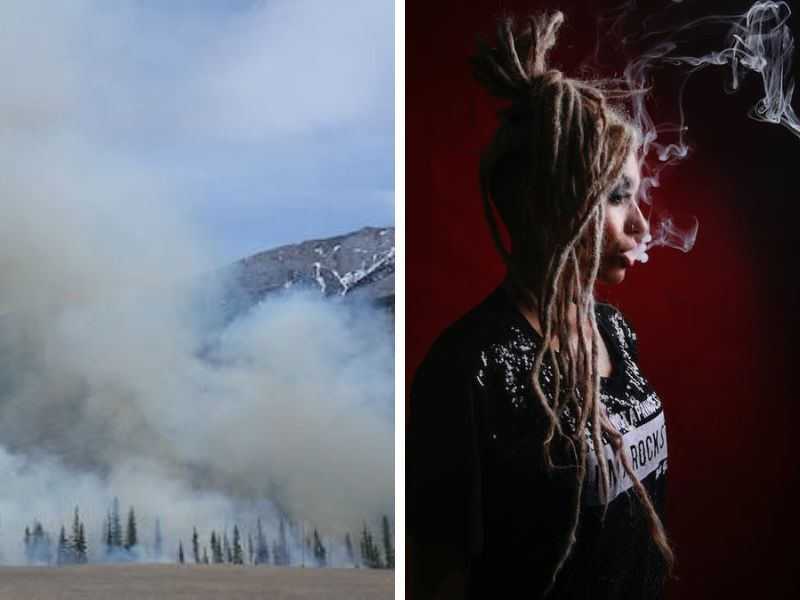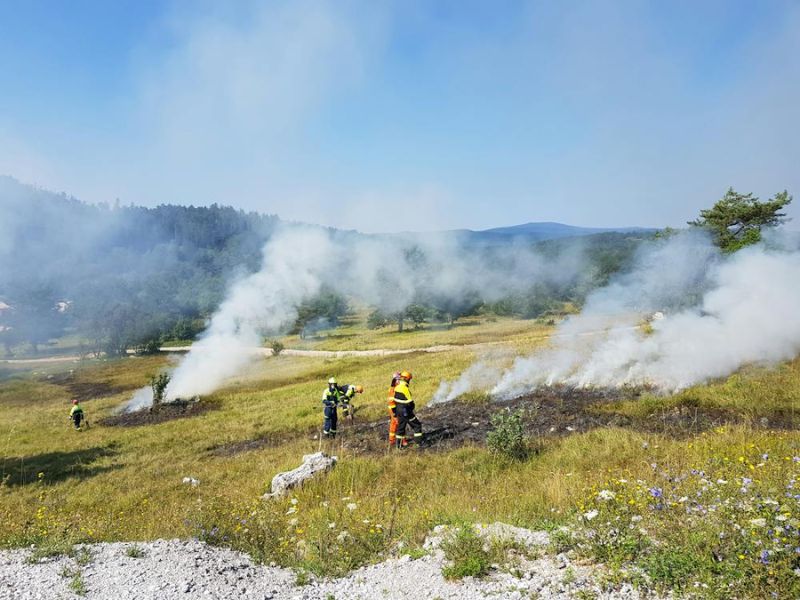As wildfires continue ravaging vast areas worldwide, the resulting smoke poses a significant health risk to individuals residing in affected regions. The detrimental effects of wildfire smoke on respiratory health are well-documented, and recent research suggests that inhaling such smoke may be equivalent to smoking a substantial number of cigarettes. This alarming finding underscores the urgent need for effective measures to combat wildfires and mitigate their harmful consequences.

Image Credit: Pexels/Pixabay & Pexels/Jeferson Gomes
A groundbreaking study conducted by researchers at a leading health institute examined the composition of wildfire smoke and its potential impact on human health. The study analyzed the levels of particulate matter and toxic chemicals present in the smoke, drawing comparisons to cigarette smoke. The researchers discovered that inhaling the smoke from a severe wildfire for a single day can be equivalent to smoking anywhere from ten to twenty cigarettes.
The Health Risks
The implications of inhaling wildfire smoke extend beyond the immediate discomfort caused by irritated eyes, coughing, and shortness of breath. The fine particles in the smoke, known as PM2.5, penetrate deep into the lungs, causing inflammation and impairing respiratory function. Prolonged exposure can lead to various health issues, including asthma, bronchitis, and even heart problems. Additionally, the toxic chemicals released during wildfires, such as benzene and formaldehyde, further exacerbate the risks to human health.

Image Credit: Pexels/Gasper Pogacar
Vulnerable Populations
Specific individuals are more susceptible to the adverse effects of wildfire smoke. Those with pre-existing respiratory conditions, such as asthma or chronic obstructive pulmonary disease (COPD), are particularly at risk. Children, older adults, and pregnant women also face heightened vulnerability due to their delicate respiratory systems. Moreover, individuals close to active wildfires or areas prone to repeated incidents are consistently exposed to these hazardous conditions.
Protective Measures
Protecting oneself from wildfire smoke requires proactive measures. Staying indoors with windows and doors closed, utilizing air purifiers, and avoiding outdoor activities are crucial steps to minimize exposure. N95 masks or respirators can also provide a certain level of protection when venturing outside. Additionally, keeping abreast of local air quality reports and evacuation orders is essential for staying safe during wildfires.